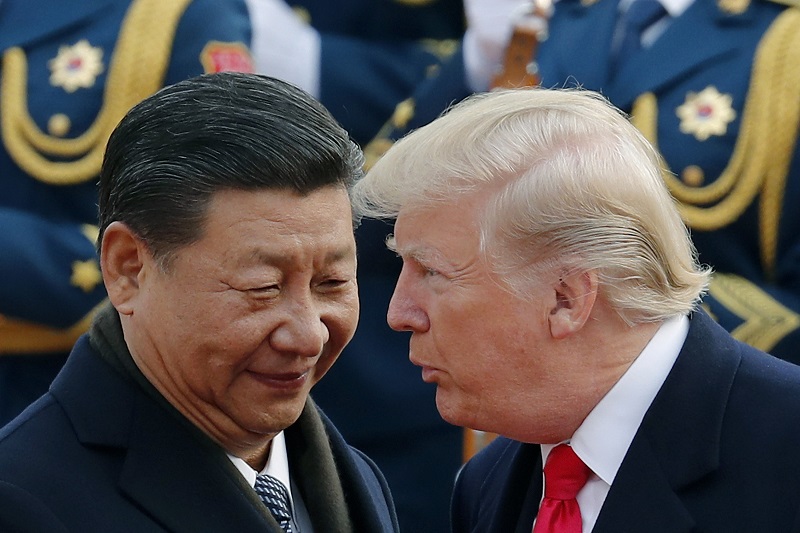What does the Chinese Ministry of Commerce say
OR China pledged today to take countermeasures to defend its ‘rights and interests’ against new customs duties that announced the Donald Trump.
The burden is astronomical for the Asian giant, as it has been targeted by 34% of its exports to its exports to the US, in addition to 20% customs duties already implemented by the Donald Trump government.
“China encourages the US to immediately cancel unilateral customs duties And to resolve in the appropriate way the differences with their commercial partners through an equal dialogue, “the Chinese Ministry of Commerce reacted.
This attack, with White House protectionism features, unprecedented in the 1930s, puts “world economic growth” and threatens international supply chains, with an impact on US interests, according to the Chinese ministry.
These customs duties’do not respect international commercial rules and seriously affect rights And the interests of the sides concerning, “the Chinese Ministry of Commerce also denounced, committing to obtain countermeasures.
Donald Trump declared Wednesday Wednesday in the world, and especially in China, which is one of his country’s largest commercial partners, causing an earthquake on the markets on the planet.
According to many experts, the new duties, which the US president described as “reciprocal”, are largely exaggerated.
“There is no winner in a trade war And no way out of protectionism, “the Chinese Ministry of Commerce also noted in its announcement.
Later today, Beijing also denounced 25% US duties in the automotive sector, referring to “bullying” measures.
China, however, noted that it “maintains communication” with Washington for trade and the economy. Beijing hopes to “resolve various issues through equal consultation,” the Chinese spokeswoman for He Yadong said.
President Trump also signed a executive decree yesterday, which closes a commercial window known as “de minimis” and allowed low -value packages from China and Hong Kong entering the US.
The US president had ordered the US trading representative to clarify whether China kept its commitments under the US-China-China trade agreement of 2020 until April 1.
China demanded it under the agreement to increase US markets by 200 billion over two years, but Beijing did not meet its goals when the Covid-19 pandemic broke out.
The height of US markets from China was in $ 154 billion in 2017before the trade war broke out, according to data from the Chinese Customs Services, and this The amount went up to 164 billion last year.
According to China expert at the Tony Blair Institute for World Change (Tony Blair Institute for Global Change) Rubban, “undoubtedly President Trump’s duties will cause most headaches elsewhere.”
“Chinese companies have redirected trade through places such as Vietnam and Mexico to avoid US sanctions, but these markets are now affected by their own duties,” he noted.
The chairman of the European Union Chamber of Commerce in China Gen Gen. Epitheld also stated that Many companies had customized their supply chains specifically to limit their exposure to commercial tensions between the US and ChinaBut he added that “any subsequent restructuring of the supply chains will not be possible from day to night”.
Extra duties could encourage China to boost its trade with alternative markets, although no other country is approaching the US consumer power, where Chinese producers sell more than $ 400 billion valid products annually.
“Trump’s duties will certainly not help Chinese companies and will cause real pain in some areas, but leave no indelible mark on the Chinese economy,” according to professor at Chong Hua Chinese Development Department at Cambridge University.
“Exports to the US are of declining importance to China. US duties will encourage China’s more trade with other places, from Europe to Southeast Asia and Africa, “he added.
“China knew that this day would come long before and the relatively limited announcements of stimulating measures at the two meetings of March was a calculation, not a vileness,” Osman concluded, referring to China’s annual parliamentary meetings.








